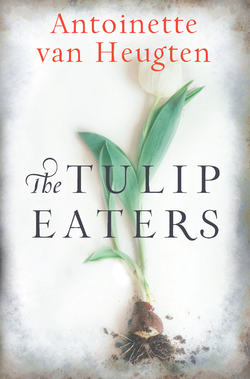Читать книгу The Tulip Eaters - Antoinette Heugten van - Страница 14
Оглавление8
Nora stared at the paper, the words blurred. Finally, she calmed herself enough to focus. Her father’s real surname must have been Moerveld. And the paper stated he had been tried in absentia for murder. Tears of disbelief fell onto her cheeks. Her father—a murderer? Of a Jewish man during wartime?
“No, Papa, no!” she whispered. It couldn’t be. Imagining him, she saw a gentle smile on his face as she sang “Twinkle, Twinkle Little Star” for her first-grade class at Poe Elementary; felt his strong arms pick up her bruised body from the street the first time he tried to teach her to ride a two-wheeler; the cozy comfort as she sat on his lap as he read La Fontaine to her. Whoever the man described in this document, it was not—could not—be her father.
And Abram Rosen, who was he, and why would Papa be accused of killing him? The attic air choked her. No, no, no! She could not accept this. Wiping her eyes, she looked at the last line of the document and that one, black, irrevocable word: Death.
She glanced through the remaining papers and then folded them into a clumsy parcel. She would take them downstairs to Marijke. She felt a new stab at their import, but also something electric. This had to be the “something else.”
As she started to put the papers back into the metal box, she peered into it. Something was stuck to its metal side. She scrabbled her fingernails against it until it came free. A small booklet, a Dutch passport. A stern, younger version of her father stared back at her. Underneath was the name “Hans Moerveld.”
Why had he changed his name to “de Jong”? And when had he and Mama decided to abandon their true identities? If the documents were true—and how could she dispute them—then they both had urgent reasons to flee. Papa must have whisked Anneke away to avoid arrest.
Nora thought back to her college days, when she had embarked on a self-made path to learn about her parents’ lives during the war. Neither would speak of it. They each insisted that she not ask more questions. Their admonition had, of course, fueled her intention to do precisely that.
She’d learned that after Dutch liberation day on May 5, 1945, known NSB-ers—men and women—had been dragged down the streets and jeered at by their neighbors and countrymen. Many were paraded around with shaved heads to further demonstrate how reviled they were. Some were pelted with rotten fruit, tied up and beaten.
Could that be why the killer had hacked off clumps of Anneke’s hair? God, what other reason could there be? Her mother a Nazi and her father a murderer?
And this killer—whoever he was—maybe he had come back for revenge. Maybe he’d also meant to kill Papa but didn’t know he was already dead.
Nora’s head spun. But why did this bastard wait thirty years? And even if Mama had been an NSB-er, what could she have done that would warrant such a long-held hatred and brutal death?
